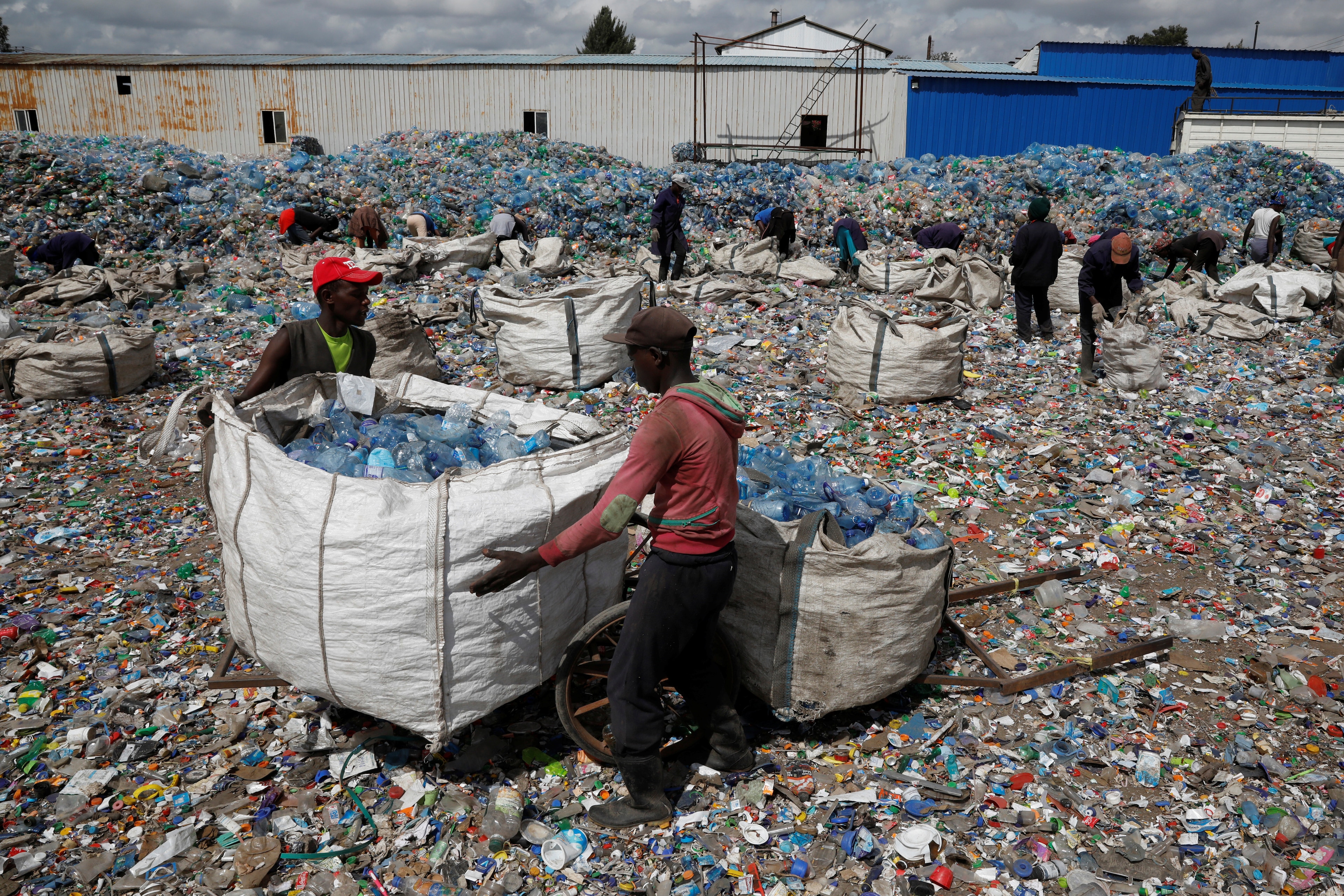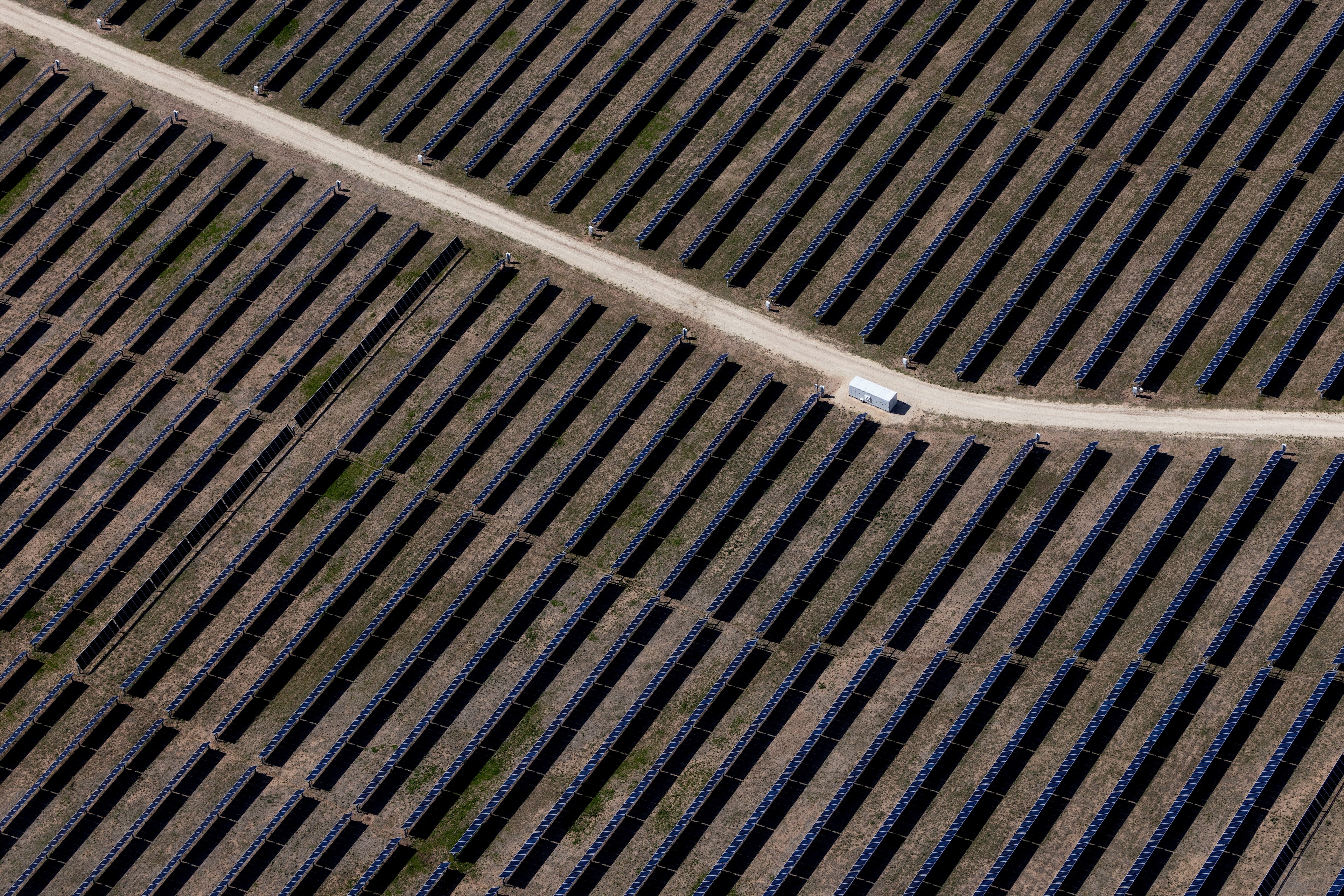Syrian crops, US farming emissions and other environment stories you need to read this week

Syria's grain crop is down 75%.
Image: REUTERS/Yamam al Shaar
Stay up to date:
Future of the Environment
- This weekly round-up brings you key environment stories from the past seven days.
- Top stories: Greater collaboration needed to curb emissions - IEA warning; Syria's grain crop down 75%; EU's excess deaths for July highest this year due to heatwave.
1. News in brief: Top environment and climate change stories to read this week
Global efforts to reduce emissions and curb rising temperatures are threatened by a lack of collaboration between countries in sharing and developing new technology, the International Energy Agency (IEA) said in a report on 20 September.
Unprecedented floods that have submerged huge swathes of Pakistan have killed nearly 1,500 people, data showed on 15 September, as authorities said hundreds of thousands of people were still sleeping in the open air after the disaster.
South Korean pop band Blackpink and American poet Amanda Gorman took to the United Nations (UN) stage on 19 September to urge action on climate change and other global goals that include achieving gender equality and ending hunger and poverty.
Top farming and food firms could lose up to a quarter of their value by 2030 if they do not adapt to new government policies and consumer behavior tied to climate change, UN-affiliated campaigners said in a new report.
The European Union (EU) plans to raise its target to tackle global warming under the Paris climate agreement, although the upgrade is unlikely to happen in time for this year's UN climate summit, according to a draft document seen by Reuters.
New Zealand's central bank governor Adrian Orr said on 19 September that the Reserve Bank of New Zealand was working with more than 110 central banks around the world to better understand and integrate climate considerations into their work.
Over 90% of the world's largest companies will have at least one asset highly exposed to the physical impacts of climate change by the 2050s, data and analysis from index and ratings provider S&P Global showed on 15 September.
African nations must help combat climate change and halt a rise in temperatures that is hitting crop yields and causing flooding and drought in the region, US climate envoy John Kerry told a conference in Senegal's capital on 15 September.
Latin America and the Caribbean face multiple and increasingly frequent risks from a changing climate, ratings agency Moody's Investors Service said on 15 September, with the risks highest for the region's energy and extractive sectors.
The US Department of Agriculture will invest nearly $3 billion in projects to reduce climate-harming emissions from farming and forestry, tripling the funding it had initially envisioned for the programme, the agency announced on 14 September.
2. Climate change, conflict decimate Syria's grain crop
Climate change, a faltering economy and residual security issues have decimated Syria's 2022 grain crop, leaving the majority of its farmers in a precarious position, the UN's Food and Agriculture Organization (FAO) said.
Syria's 2022 wheat harvest amounted to around 1 million tonnes, down some 75% from pre-crisis volumes, while barley was almost non-existent, Mike Robson, FAO's Syria Representative told Reuters.
Erratic rainfall patterns in the past two seasons have shrunk Syria's wheat crop from around 4 million tonnes annually pre-war, enough to feed itself and export to neighbouring countries in a good year.
Now after more than a decade of conflict many farmers are struggling with harsh economic conditions and security issues in some areas while having to adapt to the new realities of changing weather conditions.
The meagre harvest adds strain on Syria's sanctions-hit government as it struggles to source wheat from the international market. Food is not restricted by Western sanctions but banking restrictions and asset freezes have made it difficult for most trading houses to do business with Damascus.
International import tenders conducted by the state's main grain buyer, Hoboob, have repeatedly failed in previous years with most wheat sourced from ally Russia.
Global wheat prices have also surged since February, after Moscow's invasion of Ukraine halted grain exports from the Black Sea for months.
"Climate change isn't easy anyway but it is doubly not easy in a place like Syria with high inflation, no power, no good quality inputs and some residual security issues that are still playing up in parts of the country," Robson said.
What is the World Economic Forum doing to help ensure global food security?
3. Record heatwaves drive EU's July excess deaths to 2022 high
The European Union saw 16% more deaths than usual in July as a record-breaking heatwave hit parts of the continent, its highest monthly figure so far this year, official data showed on 16 September.
The extreme heat in southern Europe had sparked wildfires in Spain, France and Portugal, and led to thousands of heat-related deaths across Europe, spreading concern over climate change and the increasing frequency and intensity of extreme weather.
Excess mortality amounted to around 53,000 more deaths in July compared with the monthly averages for 2016-2019, EU's statistics office Eurostat said.
It defines excess mortality as the number of deaths from all causes during a crisis above what could be observed in 'normal' conditions.
"Based on the available information, some of the mortality increase in July 2022 compared to the same month of the past two years may be due to the heatwaves that have affected parts of Europe during the reference period," Eurostat said.
Don't miss any update on this topic
Create a free account and access your personalized content collection with our latest publications and analyses.
License and Republishing
World Economic Forum articles may be republished in accordance with the Creative Commons Attribution-NonCommercial-NoDerivatives 4.0 International Public License, and in accordance with our Terms of Use.
The views expressed in this article are those of the author alone and not the World Economic Forum.
Related topics:
Forum Stories newsletter
Bringing you weekly curated insights and analysis on the global issues that matter.
More on Nature and BiodiversitySee all
Oliver Kade, Sarah Hadley and Judith Ketelslegers
July 28, 2025
Nasim Pour, Sebastien Cross and Joel Gould
July 28, 2025
Elena Raevskikh and Giovanna Di Mauro
July 23, 2025
Arunabha Ghosh and Jane Nelson
July 22, 2025
Sebastian Buckup and Beth Bovis
July 10, 2025







